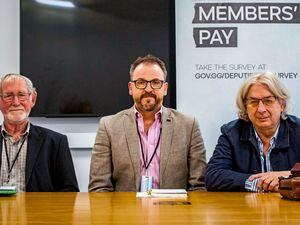Evidence shows Sala and pilot were exposed to carbon monoxide before air accident
NEW evidence reveals both footballer Emiliano Sala and pilot David Ibbotson suffered from carbon monoxide poisoning before the plane went down.

The Air Accidents Investigation Branch - AAIB - has published a second special bulletin on the loss of Piper Malibu aircraft N264EDB.
The aircraft went missing around the Channel Islands on 21 January at 8.16pm and its wreckage was located on 3 February, around 22 nautical miles, north-north-west of Guernsey at a depth of 68m.
One body was recovered from the aircraft and was identified as that of the passenger, Emiliano Sala.
Toxicology tests have been undertaken on the body of Mr Sala and showed a carboxyhaemoglobin (COHb) saturation level of 58%.
Principal inspector of air accidents Geraint Herbert said in a filmed statement that the investigation would now be particularly looking at the ways carbon monoxide could have entered the cabin.
'We have evidence to show that the passenger was suffering from the effects of carbon monoxide in his blood and we believe that the pilot was likely to have been suffering from exposure to carbon monoxide as well before the accident,' he said.
'We are looking at the potential ways in which carbon monoxide can enter the cabin in this type of aircraft.'
Carbon monoxide is a colourless, odourless gas produced from the incomplete combustion of carbon-containing materials. When inhaled, it combines with haemoglobin, the protein responsible for carrying oxygen around the blood. This means oxygen is unable to combine with the protein and so less can be carried in the bloodstream, affecting parts of the body such as organs and muscles which need oxygen to function properly.
Symptoms lower than 50% COHb saturation can include drowsiness, headaches, chest pain and shortness of breath however once over 50% effects include seizure, heart attacks and unconsciousness.
Mr Herbert said a further report will be published in due course.





